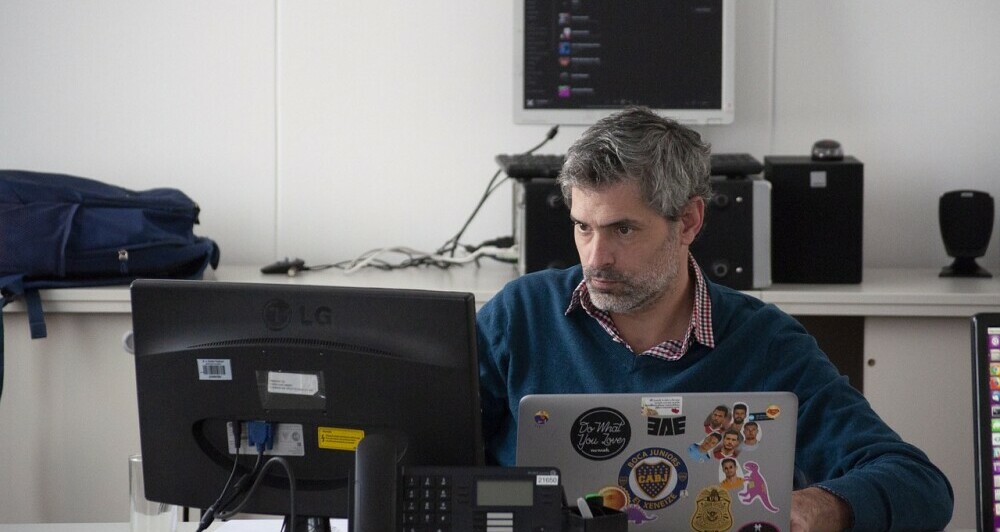The Investor Diary Entry #54: June 13, 2024
What is trading anxiety? This is the first thing that we need to understand before we make any other steps. If you’ve ever felt your pulse quicken at the thought of missing out on a trade, or your stomach knot up when the market took a sudden dive, then you’ve experienced trading anxiety. It’s that uneasy feeling that crawls up your spine when you’re about to click ‘buy’ or ‘sell,’ wondering if you’re making the right decision.
You’re going to find out about not only the surface-level triggers, like market volatility, but also the deep-seated fears that connect to our fundamental need to succeed and not lose out. It’s where your personal journey with anxiety intersects with the high stakes of trading. When the markets are buzzing, and prices are jumping, it’s all too easy to feel overwhelmed, especially if you are already grappling with your day-to-day anxieties.
This isn’t just about the technicalities of trading, it’s also about understanding the FOMO – fear of missing out. That insidious worry that you’ll be the one left on the sidelines, that someone else is making the gains that should have been yours. FOMO can cloud your judgment, urging you to jump into trades without the thoughtful analysis that should come first.
When existing anxiety is part of the equation, it intensifies the experience. The pressure to not miss out on a ‘golden opportunity’ can lead to decisions that aren’t grounded in rational thinking but rather, are driven by an emotional response to the anxiety itself. It’s a cycle that can be tough to break free from, but understanding it is the first step to regaining control.
Recognizing the Risks: Hasty Decisions and Poor Analysis
 You’ve been there before. That gut-wrenching moment when you spot a price point and the thought of missing out grips you. Your finger hovers over the ‘buy’ or ‘sell’ button, driven by an almost primal urge to act NOW. But wait, what’s propelling you into this hasty decision? It’s not just the adrenaline at play; it’s your ingrained fear of missing an opportunity, and it is a trader’s kryptonite.
You’ve been there before. That gut-wrenching moment when you spot a price point and the thought of missing out grips you. Your finger hovers over the ‘buy’ or ‘sell’ button, driven by an almost primal urge to act NOW. But wait, what’s propelling you into this hasty decision? It’s not just the adrenaline at play; it’s your ingrained fear of missing an opportunity, and it is a trader’s kryptonite.
In my experience, letting fear dictate your trades leads to decisions that haven’t been fully thought through. The dangers here are twofold. First, you’re likely sidestepping an essential part of trading – thorough analysis. Second, this rush can have you overlooking vital details that would normally trigger red flags. It’s the trading equivalent of jumping into an ocean without checking for sharks.
Consider some anecdotes from seasoned traders who learned the hard way. One recalled how a hasty decision to catch a rallying stock resulted in a significant loss when the trend abruptly reversed – a classic example of poor analysis meeting bad timing. Another shared how neglecting to read a critical earnings report led to buying into a doomed investment.
To counteract the impulse to make rushed trading decisions, there’s a need for a tactical pause. A moment to breathe and recalibrate. It’s a practice that successful traders often preach. They suggest establishing a set of predefined rules or a checklist that must be completed before any action is taken. This might include confirming patterns, setting stop-loss orders, or analyzing market conditions in depth.
Don’t let the fear of missing out cloud your judgment. Instead, invest time in developing a disciplined approach to market analysis. This could include setting aside specific times for research, utilizing analytical tools to gauge market sentiment, or seeking insights from trusted financial forums and experts. It’s about shifting from a reactive mindset to a proactive one.
So as we move towards understanding the significance of informed trading in the next section, remember that timing your trades without the right information is like driving a car with a fogged windshield. Ensuring that your decisions are backed by data and clear analysis is not an option but a necessity for long-term success in the fast-paced world of trading.
Informed Trading: Navigating Market News and Trade Timing
You’re going to find out about the crucial role that staying current with financial news plays in informed trading decisions. It’s not just about jumping in when a stock price looks tempting; it’s about understanding the why behind the movements.
Don’t worry too much about catching every piece of news out there. Instead, I’m here to help you filter out noise and focus on the news that could have a significant impact on your trades. Whether it’s a change in interest rates, an unexpected earnings report, or a geopolitical event, knowing what matters is key.
I don’t trade on fundamentals. I trade using technical analysis, but when there is news I don’t enter the market. I still don’t know how to manage my open positions during news days. I still get that news and see what they did to the chart.
I understand the pressure to act quickly in a dynamic market. Yet, it’s essential to balance the urgency to trade with the need for thorough information analysis. Let’s break down effective methods to incorporate timely news without compromising on the depth of understanding.
There are real-world scenarios where ignoring important news led traders to make decisions they later regretted. These stories aren’t just cautionary tales; they’re lessons on the importance of being informed before making a move.
Many books on investing talk about different investors and traders, and their trade real-life stories, whether they were success stories or catastrophic stories.
Creating a Toolkit for Anxiety-Free Trading
 Now, let’s get practical and build a solid toolkit that helps you trade with peace of mind. Keeping anxiety at bay isn’t about a one-size-fits-all solution; it’s about custom-fitting strategies that work for you. That means fine-tuning your approach, so it resonates personally and professionally.
Now, let’s get practical and build a solid toolkit that helps you trade with peace of mind. Keeping anxiety at bay isn’t about a one-size-fits-all solution; it’s about custom-fitting strategies that work for you. That means fine-tuning your approach, so it resonates personally and professionally.
The core of your toolkit should be your personalized trading strategy. This is your blueprint for when and how you are going to enter or exit a trade, based on clear criteria that factor in both technical analysis and market news. This is your trading methodology.
Your trading strategy will also include your risk management rules. Your Reward Risk Ratio, your stop loss, and position size parameters which are dictated by your risk per trade, risk per day, and risk in all open trades percentages.
By creating your trading strategy including your trading methodology and risk management rules and sticking to them, you can minimize impulsive decisions.
Mindfulness and reflection are your allies. After a trading session, review your trades. Why did you make them? How did you feel? Engaging in this thoughtful process can lead to great insights and prevent similar miscalculations in the future.
I have a column in my trades spreadsheet that I use to mention what are the mistakes that I made when I opened this particular trade. I write this just after opening the opposition, not after it closes. Therefore, no matter what the result of the trade was, and even if it turned out to be a winner, I would not down the mistake(s) that I committed when opening this particular trade.
There’s no need to go at it alone. Support systems are invaluable. Engage with communities of traders, to share experiences and strategies. Find a mentor if possible and consider professional help if your anxiety needs that level of care. Learning from others can significantly reduce your stress.
Finally, remember that trading is not just about making profits; it’s about personal growth as well. Embrace the lessons from your trading journey as opportunities to become a more resilient investor. The ultimate goal is to achieve a balanced mindset that aligns with your investment goals and personal well-being.
The Investor
Thursday 13 June 2024
About The Author
I started to look into individual stocks in January 2022. I created this diary initially for myself to track my investing progress, and second, as a place where I can share my ideas publicly hoping that others will share their ideas and learn from each other, and lastly as an online business where some links that I share are affiliate links, and if anybody bought anything by clicking those links, I will get a commission based on that successful sale, which of course will not affect the price that you are buying the product or service at.
For more detailed information on my affiliate disclosure please refer to the Full Affiliate Disclosure page, and if you are interested in building your own online business you can check this post here.
Furthermore, this site is in no way or form is giving any financial or investing advice, nor it is encouraging or discouraging people to buy or sell any financial instrument. This is a personal diary in which I track my own progress and share it for informational, educational, and entertainment purposes.


As someone who has never traded before, the article “Solutions for Trading Anxiety” provides insightful strategies for managing the emotional challenges associated with trading. It highlights the importance of understanding the psychological factors like FOMO (fear of missing out) that can drive hasty decisions. The advice on creating a disciplined trading strategy, thorough market analysis, and mindfulness practices seems practical even to a novice. The emphasis on learning from experienced traders and seeking community support resonates well, suggesting that emotional control is as crucial as financial knowledge in trading.
There is a general rule that both seasoned traders and investors keep saying, is that the price always comes back to where you want it. Many new traders as well as investors fear of missing out on a price level so they make hasty decisions. And almost always once they hit the open position the prices go against their position and the regret cycle begins.
Reading this post I can see exactly why I don’t trade. I would be a nervous wreck and so indecisive. I leave all my finances to my financial advisor and trust that he does good for me, which he normally does.
I think you need to be a very level-headed and calm person to trade. You also need to be passionate about it and know the ins and outs. You need to know all the companies that you are investing in and what their books look like. I feel I don’t have the time and would rather someone else did it for me for peace of mind.
Trading is for sure a path. For example Doctors make a lot of money, but I cannot see myself as a doctor. With regard to investment, I totally agree with you. An investor needs to have all the time in the world to design an investing strategy, scan for companies that present opportunities within my strategy, then study them in detail…etc. But there is a solution for that as well apart from having a financial advisor.
One can invest in the total market. in the S&P500; for example. One can pick and index and put a monthly amount in that index month in and month out as if having a saving account. One does not need to concern about market up or down.. just keep on saving money in the index of choice. Keep that habit until retirement.
But even that needs a choice of index.
Thank you very much for your comment.
Hello. It’s one of the hardest things about trading is the emotional aspect of it. Humans are very very emotional. And we make decisions emotionally and then we justify them logically. Trading can be the same thing. And they can absolutely affect your decisions and can be extremely costly. This is something we all have to work on.
Hello Jake,
Thank you for sharing your thoughts. Indeed, the emotional aspect of trading, especially anxiety, can be one of the most challenging parts of the journey. Anxiety can cloud our judgment and lead to impulsive decisions that we later regret, making it a significant obstacle to successful trading.
In my article, I emphasize the importance of recognizing the signs of trading anxiety and implementing strategies to manage it effectively. Techniques such as developing a robust trading plan, practicing mindfulness, and taking regular breaks can help mitigate anxiety. Additionally, having a strong support system and engaging in regular self-reflection can aid in maintaining a calm and focused mindset.
All of us must work on managing our emotions to avoid costly mistakes. Let’s continue to support each other in overcoming trading anxiety and achieving our trading goals.
Best regards,
The Investor